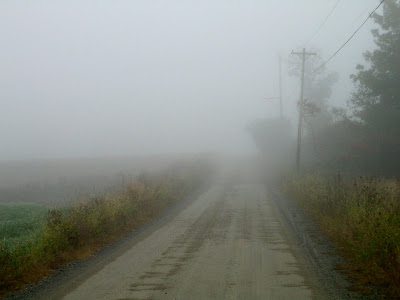Hexagram 12 -- STAGNATION
 I awoke this morning wondering about which hexagram typifies our resistance to change; STAGNATION leapt to mind. I also consider it my "pet" hexagram, as in "pet peeve" -- the pit that I keep hurling myself into, all best intentions aside. It's every bad habit that I won't attempt to transform, every refusal to engage, every blockage I erect against meaning.
I awoke this morning wondering about which hexagram typifies our resistance to change; STAGNATION leapt to mind. I also consider it my "pet" hexagram, as in "pet peeve" -- the pit that I keep hurling myself into, all best intentions aside. It's every bad habit that I won't attempt to transform, every refusal to engage, every blockage I erect against meaning.Change occurs, despite all our attempts to nullify it. Change is in every breath; it's like gravity: it just is. The beauty of the yin-yang continuum is that it invites us to perceive everything as a whole -- always animate, moving, relating...containing and contained by all time -- past, present, and future. Nothing, not even the quality of STAGNATION, is static. When we fully realize the truth that everything is changing all the time, we're already moving into a larger relation with our habits; we see how they've been generated, formed, and molded; how we presently relate with them, how much influence we allow them, and how riveted we are to acting on and perpetuating them.
Every habit runs the behavioural gamut from reverent to nihilistic. STAGNATION implies rotting in the muck -- paralysis, dissociation, indifference. A traditional image for STAGNATION is the swamp; contrary to common ignorance, swamps actually teem with life. There's very little articulation in the murky reek of a bog; it's a cold soup and no one's stirring the pot. A swamp is life in really slow motion...until an alligator comes along.
STAGNATION, sequentially, sits between PEACE (11) and COMMUNITY (13). The I Ching recognizes that periods of laying low and doing nothing are sometimes necessary for well-being, as long as we do not drown ourselves in them through inertia, depression, and apathy. We need to work diligently with our thoughts -- to enliven equanimity and to remind ourselves that STAGNATION need not be a permanent state; we are also urged to recognize our inherent connections with other humans and all of Life. Negative habits of thought deaden our innate goodness and our natural tendency to reach out and relate; we are like silt in a stream, clogging up our vital currents.
Just today, my husband and I conversed at length online with a young friend of ours who is ill with cancer; she is very depressed and admitted that her most predominant feeling toward herself is hatred. Some of her feeling, we are sure, lies in the despair of living through an experience of constant exhaustion and wrenching sickness that is likely to end in an early death; her body is in a third recurrance of the disease. The one gift we can offer her, without pause, is our love...and our hope that the love of all her kin can help to ignite in her some tenderness for herself. She finally admitted, when I gently badgered her to name one aspect of herself that she does like, that she likes her hair. She also admitted that there are at least five people in her world whom she knows love her.
And there's the spark that can begin to lift us out of despair -- a sense of connection, of relatedness. It is the best medicine we have. What might startle this dull pain and make it move and live? asked Samuel Taylor Coleridge.
Love.
What poison is to food, self-pity is to life.
(Oliver C. Wilson)


Comments
~ I think of these words today in relation to rote, routine, ritual and reverent action ...
"... habit made holy" ...
I really like your comments.
Congrats!